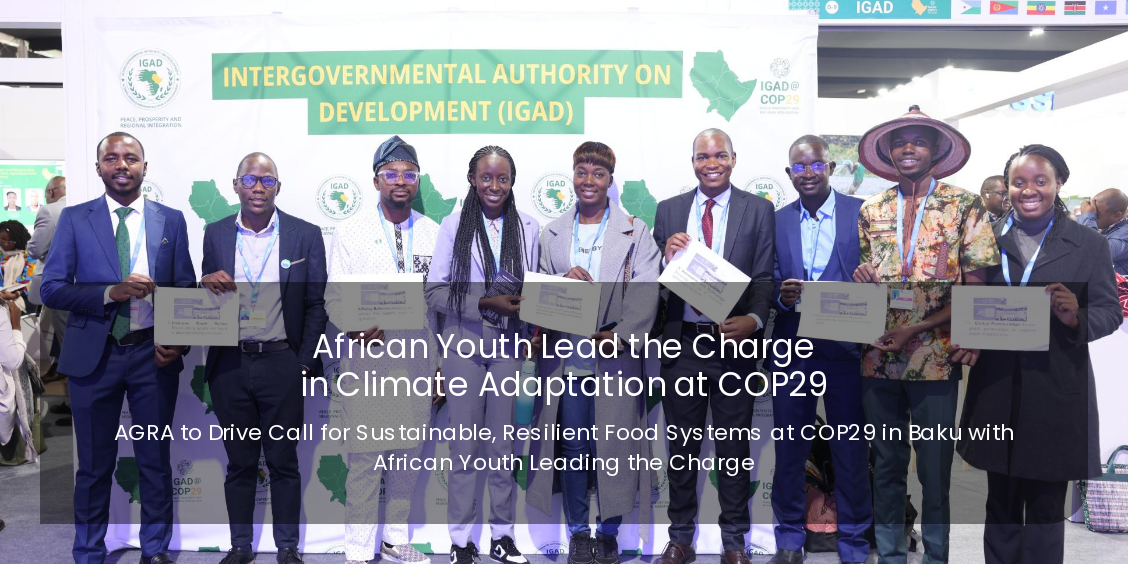
Our Correspondent | Africa Guardian
At COP29, African youth emerged as key players in discussions on food systems and climate adaptation. They showcased innovative technologies and shared best practices from their farms and enterprises, highlighting their role in addressing climate shocks. Through diverse sessions attended by global stakeholders, these young climate champions underscored the critical role of youth in driving sustainable agricultural practices and tackling climate change.
Young agripreneurs from across the continent presented their efforts to transform food systems for climate resilience. They shared practical examples, such as adopting drought-resistant crops, utilizing renewable energy, implementing water-saving irrigation techniques, and embracing agroforestry practices. These innovations are not only strengthening their communities’ resilience to climate impacts but also enhancing food security and livelihoods.
Marcia Manhica, Vice President of the Association for Health and Rural Development in Mozambique, emphasized the urgency of collective climate action, stating:
“Climate change is the greatest threat to our existence on the planet. No one will escape its consequences if we do not unite to combat this phenomenon. The planet without us will always be a planet, but we cannot exist without the planet.”
Dolphine Magero, Founder of the Green Youth Climate Fund Initiative, highlighted the importance of targeted climate finance:
“The 29th Conference of Parties to the UNFCCC presents an opportunity for the international community—and particularly Africa—to design a climate finance mechanism addressing food security. COP29 must allocate at least 10% of climate finance to youth-led climate-resilient initiatives and establish a grant-based climate finance goal supporting sustainable food systems through programs like the Climate-Friendly School Feeding Programme.”
The youth also presented 11 recommendations from the African Common Position on Youth Food Systems and Climate and the Kigali Declaration on Youth in Food Systems and Climate Action, which included:
- Investing in youth-centric food systems and climate policies.
- Enhancing access to resources and funding for young farmers.
- Strengthening capacity building and knowledge sharing.
- Promoting technological innovation in agriculture.
- Facilitating inclusive, gender-equitable agricultural policies.
- Accelerating agro-industrial development and value chain integration.
- Mobilizing youth as key actors in climate action.
- Encouraging collaboration and partnerships for youth empowerment.
- Strengthening policy and advocacy frameworks with youth involvement.
- Advancing research and development to inform youth engagement.
- Increasing climate action finance for Africa.
These events showcased the transformative potential of African youth to develop food systems resilient to climate change. Their active participation at COP29 demonstrated a commitment to building a sustainable future, underscoring the need for continued investment in youth-led initiatives.
Dr. Jeremiah Rogito, Specialist for Food Systems, Land Use, and Climate at AGRA and leader of the AGRA Youth Delegation at COP29, lauded their contributions:
“African youth are not just the leaders of tomorrow; they are the changemakers of today. At COP29, we witnessed their resilience, creativity, and determination in tackling climate change. Through innovative approaches to building climate-resilient food systems, these young leaders set a powerful example for the world. Now, more than ever, we must invest in their potential and amplify their voices to ensure a sustainable future for all.”
___
